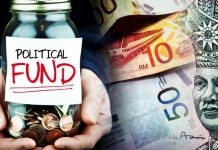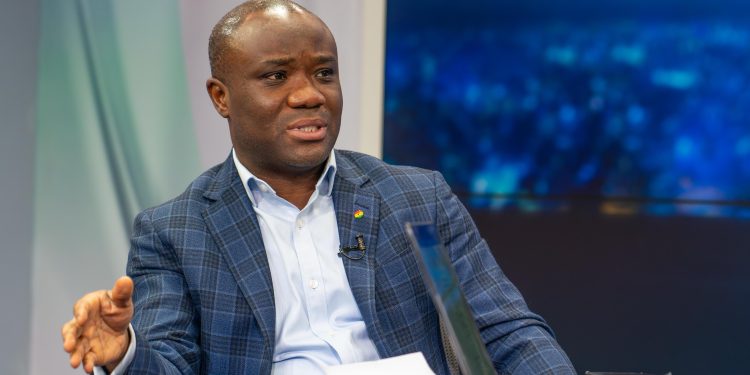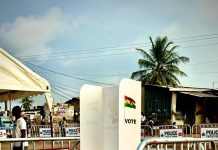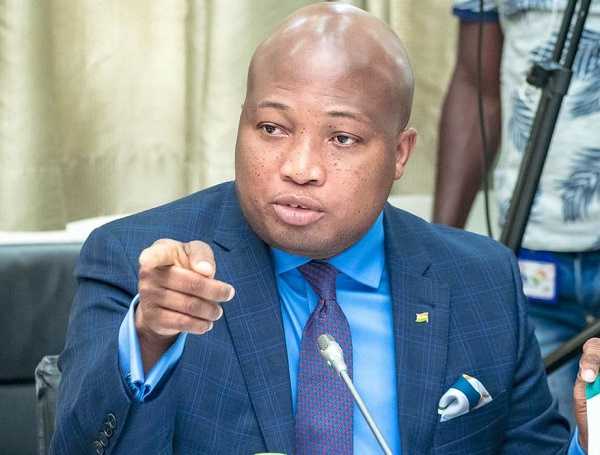Ghana’s Minister for Foreign Affairs, Samuel Okudzeto Ablakwa, has assured Parliament that the recent U.S. visa restriction affecting Ghanaian travellers is temporary and expected to be lifted in due course.
Responding to questions in Parliament on Wednesday, July 23, 2025, Mr. Ablakwa revealed that diplomatic engagements with the U.S were ongoing.
The Embassy in Accra indicate that the current three-month single-entry visa policy for Ghanaian nationals is part of a broader move by the Trump administration to sanction 36 countries over visa policy violations.
“With the assurances we received from the U.S. Embassy, the three-month single entry, which is a temporary measure for those 36 countries, is part of actions being taken by President Trump in response to various violations,” he explained.
“In Ghana’s case, it relates to visa overstay. They claim 21 per cent of our students who have travelled over the past ten years have not returned.”
The new visa guidelines issued by the U.S. Department of State drastically reduced visa validity for most Ghanaian non-immigrant visa applicants.
Previously, applicants could obtain multiple-entry visas valid for up to five years, especially for B-class (business and tourism) and F-class (student) categories. Under the new policy, these visas are now limited to single entry and valid for only three months.
While diplomats and government officials with A-class visas are exempt from the changes and will continue to enjoy visa durations ranging from 24 to 60 months, the new rules affect the vast majority of Ghanaian travellers, including businesspeople, tourists, and students.
Students issued F-1 visas for academic programmes will now also be restricted to a single entry for a maximum of three months. This means that students leaving the U.S. during their studies would have to reapply for a visa to return—adding cost and uncertainty to their academic journeys.
The U.S. State Department has not issued a Ghana-specific explanation beyond its broader visa reciprocity policy, which seeks to ensure that U.S. citizens receive comparable treatment from other countries. Similar restrictions have recently been applied to other countries, including Nigeria.
Mr. Ablakwa noted that the Ghanaian government is working closely with U.S. officials to address the concerns raised and to ensure that the policy is reversed as soon as possible.
“We are engaging. The goal is to demonstrate progress in addressing their concerns and have Ghana removed from this temporary sanctions list,” he told Parliament.
The new visa rules have triggered concern among frequent travellers, educational institutions, and business associations, who say the added cost and inconvenience could affect academic planning, cross-border trade, and international collaboration.
























































![[FREE FREE MONEY] Predict and Win a Guaranteed GH¢200 From Us EVERY WEEK](https://wordpress.ghanatalksradio.com/wp-content/uploads/2022/02/Predict-and-Win-Final-09-03-2021-218x150.jpg)
![[Predict & Win – 8th/Oct.] WIN A Guaranteed ¢200 From Us This Week](https://wordpress.ghanatalksradio.com/wp-content/uploads/2021/10/maxresdefault-16-218x150.jpg)
![[Predict & Win – 2nd] WIN A Guaranteed ¢200 From Us This Week](https://wordpress.ghanatalksradio.com/wp-content/uploads/2021/09/maxresdefault-50-218x150.jpg)
![[Predict & Win – 25th] WIN A Guaranteed ¢200 From Us This Week](https://wordpress.ghanatalksradio.com/wp-content/uploads/2021/09/maxresdefault-36-218x150.jpg)
![[Predict & Win – 18th] WIN A Guaranteed ¢200 From Us This Week](https://wordpress.ghanatalksradio.com/wp-content/uploads/2021/09/maxresdefault-23-218x150.jpg)









![[National cathedral] See full list of churches that have contributed since 2018](https://wordpress.ghanatalksradio.com/wp-content/uploads/2020/09/Ghana-National-Cathedral-GhanaTalksRadio-100x70.jpg)
![[IMF bailout] Quickly agree on debt relief terms –Finance minister, Ken Ofori-Atta pleads with bilateral creditors](https://wordpress.ghanatalksradio.com/wp-content/uploads/2023/07/ken-ofori-atta-before-censure-committee-1-100x70.jpg)


